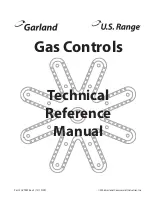
Safety thermostat
Incorrect operation of the appliance or
defective components can cause
dangerous overheating. To prevent this, the
oven has a safety thermostat which
interrupts the power supply. The oven
activates again automatically when the
temperature drops.
HINTS AND TIPS
WARNING!
Refer to Safety
chapters.
The temperature and baking
times in the tables are guidelines
only. They depend on the
recipes and the quality and
quantity of the ingredients used.
General information
• The appliance has four shelf positions.
Count the shelf positions from the
bottom of the appliance floor.
• The appliance has a special system
which circulates the air and constantly
recycles the steam. With this system you
can cook in a steamy environment and
keep the food soft inside and crusty
outside. It decreases the cooking time
and energy consumption to a minimum.
• Moisture can condense in the appliance
or on the door glass panels. This is
normal. Always stand back from the
appliance when you open the appliance
door while cooking. To decrease the
condensation, operate the appliance for
10 minutes before cooking.
• Clean the moisture after each use of the
appliance.
• Do not put the objects directly on the
appliance floor and do not put aluminium
foil on the components when you cook.
This can change the baking results and
cause damage to the enamel.
Baking cakes
• Do not open the oven door before 3/4 of
the set cooking time is up.
• If you use two baking trays at the same
time, keep one empty level between
them.
Cooking meat and fish
• Use a deep pan for very fatty food to
prevent the oven from stains that can be
permanent.
• Leave the meat for approximately 15
minutes before carving so that the juice
does not seep out.
• To prevent too much smoke in the oven
during roasting, add some water into the
deep pan. To prevent the smoke
condensation, add water each time after
it dries up.
Cooking times
Cooking times depend on the type of food,
its consistency, and volume.
Initially, monitor the performance when you
cook. Find the best settings (heat setting,
cooking time, etc.) for your cookware,
recipes and quantities when you use this
appliance.
8
Progress









































